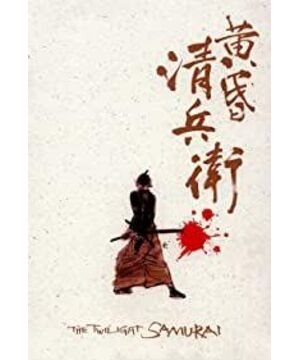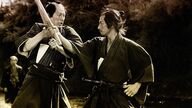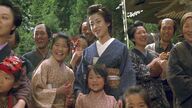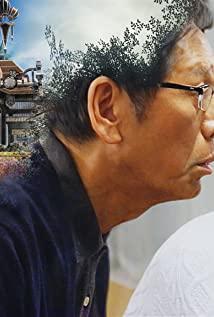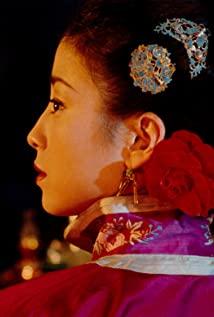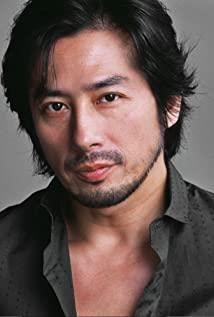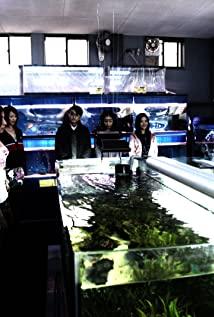There was a time when we could meet unexpected people anytime, anywhere.
"When there is only one will in the world, the space is actually vast, and there are various wills here and there. They are hidden, hidden in the shadow of the master of the great will, they do not write history, they only write Some private lives that go away with the wind." This is an excerpt from Wang Anyi's "The Age of Recluse".
For some reason, this reminded me of this after reading "The Seibei of Twilight". About the Meiji Restoration, there was only a short page in my middle school textbook more than ten years ago, "In the late 1860s, Japan was attacked by Western capitalist industrial civilization and carried out a modern reform movement with a capitalist nature. It is an important turning point in the modern history of Japan." Behind these words, in the turbulent times of the great era, the ups and downs, the ups and downs, how many people and things are hidden that others do not know? Those annihilated in the vast river of time, the real history of writing is not as much as one ten thousandth of a million.
The film revolves around a person who becomes the foreground and history recedes into the background. At the end of the shogunate's rule in the Edo period, the tide of the Meiji Restoration had already surged. In a corner of the chaotic world, in a small town called the Haiban domain (the name of the Haiban domain was fictionalized by the author), Qingbingwei Iguchi was a feudal lord. The lower level samurai who oversees the warehouse. Because he doesn't like socializing, he goes home every evening to take care of his wife and children. His incompatible philosophy of life has also caused him to be despised and ostracized by his colleagues. "The Seibei of Twilight" was the nickname given to him by his colleagues.
After the death of his wife, Iguchi was too busy to take care of himself because of his work at home. He wore sloppy clothes every day, and he smelled bad because he didn't take a bath. He was ridiculed and reprimanded by colleagues and even elders. Forced to make a living, he sold his family's samurai sword, which revealed the down-and-out and embarrassment of a low-level samurai.
It is such an inconspicuous marginal figure, who would have thought that he is a master of the famous swordsmanship and a master of the unique swordsmanship. When he returned home in the evening, he and his daughter gathered around the fire, doing household chores. When her daughter recited the Analects, he encouraged the girls to read and think more. Although reading is not a practical skill, no matter what In such an era, people who are good at thinking can live, regardless of gender. This is his encouragement to his daughter, and it is also a portrait of himself.
At dawn, he returned to the past, doing the daily life of a "civil servant", mediocre. Aside from his identity as a samurai, Iguchi is more like a recluse in a busy city, hiding all his sharpness, keeping a low profile and not showing his face. Like a cicada, dormant in the night, only when the moon and stars are thin and stretched and crouched for a long time will it show its talents that are different from others. And when the sun came out and the roosters croaked and dawned, they changed their voices again and merged with the mundane scene again.
In the end, Iguchi did not escape the "destiny" given him by the times - he died in the fire of the battle with the emperor's army. As a samurai at the bottom, he was in the camp of the Samu faction. With his own talents, it may not be him who participated in this war. However, the samurai spirit emphasized that "the warrior is the Taoist, and death is also called.", "to live to death, to be loyal and righteous", under the trend of the times at that time, it seems that his end has been doomed.
The death of the war is not just an ending written for him alone, but the collective destiny of a class. Individuals in it, alone, cannot resist such an arrangement.
Iguchi's life and history are closely intertwined, but he deliberately maintains "alienation" from it. Whether it is his mate selection conditions or the education of his children, it now seems to have surpassed the mainstream concepts at that time. "Life in Recluse" somehow preserved for him a more complete personality independent of the times. As Iguchi's daughter at the end of the movie recalled her father's life: "His short life is full of good memories." Even if he was born 30 years earlier or later, maybe the storyline of his life will be rewritten , but as a more independent individual, he can live without being attached to the times.
I remembered what Ajo once said: "Each era has its own predicament." Compared with the samurai at the end of the Edo period in Japan, people today may not have to worry about the stray bullets of war, but worry about the haze in the morning every day. Taking a breath of air into your lungs, you may not have to worry about food and clothing, but you will be worried about the safety of food on the table. Maybe there will be no unequal feudal hierarchy, but you will still encounter injustice and rough governance. Times are changing, and problems just change accordingly. What remains the same is the existence of problems.
For thousands of years, the world has come and gone, and I don't know how many people have been changed. It is one person after another that makes up history, but when we look back at the past, we can only see one collective, one kind of society. In fact, a person cannot create history, and even if he does, it does not belong to him entirely. What a man can write in his whole life is, after all, only his own biography.
At the end of the film, Iguchi and his wife Pengjiang are buried on the mountain. Daughter Eden, who is in his sixtieth year, came to pay homage. There are no formal tombstones in front of him. There is no trace of the wind, the so-called real seclusion, in fact, does not leave a monument.
View more about The Twilight Samurai reviews


